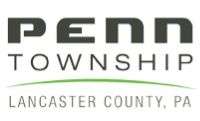Stormwater Management Ordinance
On April 28, 2014, the Penn Township Board of Supervisors adopted an updated Stormwater Management Ordinance (Chapter 23 of the Township Code of Ordinances). The update is required by the PA Stormwater Management Act, also known as Act 167.
The Township’s obligation under this law is to enact a Stormwater Management Ordinance consistent with the most up-to-date Act 167 Plan effective in the municipality. Lancaster County’s Integrated Water Resources Plan was adopted last year, and serves as the most recent Act 167 in Penn Township. This Ordinance helps ensure municipal compliance with the state law.
A digital copy of the Ordinance is available for download below, along with supplemental information for homeowners and contractors. The “Small Projects & Exemption Packet” and “Small Project BMP Details” offer guidance for projects proposing no more than 5,000 square feet of new impervious surfaces and/or land disturbance.
Please contact the Township Office for assistance with the updated Ordinance or Small Project materials.
SWM Ordinance Documents
The Ordinance
Penn Township administers a comprehensive stormwater management ordinance contained within Chapter 23 of the Municipal Code. The ordinance, which is part of the overall Stormwater Management Program, has been established to:
- Control accelerated runoff and erosion and sediment pollution problems at their source by regulating activities which cause such problems.
- Utilize and preserve the existing natural drainage systems within the Township and prevent scour and erosion of stream banks and stream beds.
- Encourage recharge of groundwaters and management of runoff close to the source with emphasizes on infiltration, evaporation, and transpiration.
- Maintain the existing flows and quality of watercourses in the Township and the Commonwealth.
- Preserve and restore the flood carrying capacity of watercourses.
- Provide for proper maintenance of all permanent stormwater management facilities and Stormwater Best Management Practices (SWM BMPs) which are constructed in the Township.
- Provide procedures, performance standards and design criteria for stormwater management and planning.
- Provide standards to meet NPDES permit requirements.
- Meet legal water quality requirements under state law, including regulations at 25 Pa. Code Chapter 93 to protect, maintain, reclaim and restore the existing and designated uses of the water of the Commonwealth.
Public Safety
Simply stated, we want to avoid scenes like what you see on the right while reducing the amount of pollutants that flow from runoff to streams and other waterways. The Stormwater Management Ordinance allows us to reasonably ensure that new construction projects do not add to drainage issues or negatively impact water quality.
A Move Towards Innovative Solutions
For decades, mowed detention basins were the common solution for runoff resulting from impervious surfaces (areas that water cannot soak into). Stormwater was channelized or piped into these facilities where it was slowly released into waterways or the public storm sewer system. They were relatively effective in curtailing flooding situations, and even provided some pollutant reduction benefits.
But over time, innovation has provided us with alternative solutions that offer some alternatives to property owners, developers, and even municipalities. Elements like permeable paving and pavers, rain gardens, infiltration trenches, and green roofs are being used more and more to keep runoff from crossing property lines – as well as providing opportunities to remove excess nutrients and sedimentation. In fact, the Township Stormwater Management Ordinance requires that these multi-purpose facilities be explored first, to achieve water quantity and quality goals.
A Collective Effort
The bottom line is that as our population grows, more homes and businesses will follow. As wooded areas, farmland, and meadows are covered with rooftops and roads, we must use the best available techniques to avoid adding to flooding and water quality problems. If every property owner does their part, our streams will benefit – as will the Susquehanna River and the Chesapeake Bay.



You must be logged in to post a comment.